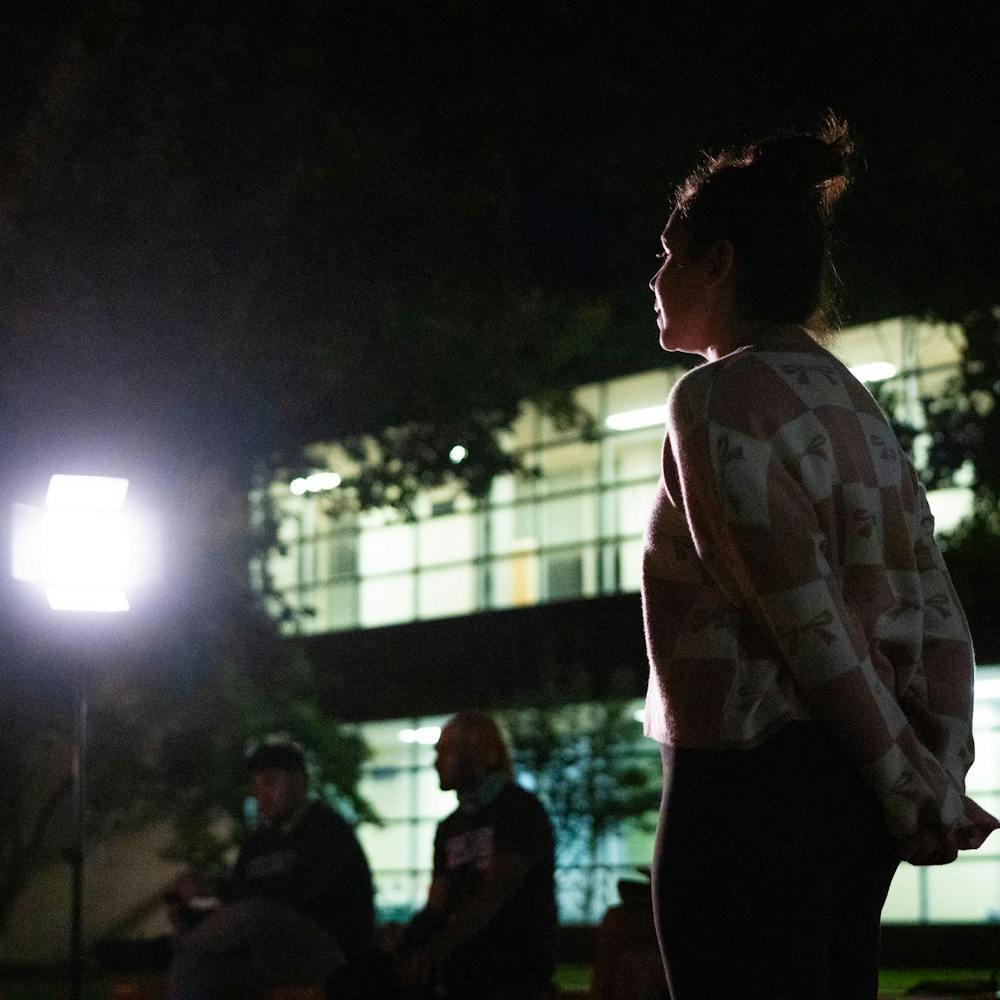When Faramarz Vafaee heard his friend was leaving to go back to Iran to visit his ailing mother, he never thought his friend wouldn’t be able to make it back to MSU.
After spending more than two years at MSU working on his doctorate in mechanical engineering, Saleh Rezaei Ravesh was denied re-entrance into the U.S.
But his friends at MSU are fighting back.
Vafaee and Rezaei Ravesh are both members of MSU’s Persian Student Association, or PSA, and Vafaee said the group has been working with various MSU officials for months to help bring Ravesh back to MSU.
In fall 2009, Rezaei Ravesh came to MSU to work on coding and research for the College of Engineering, and after 27 months, he returned to Iran to visit his ill mother.
Because Rezaei Ravesh left the U.S., he needed to apply for a new visa to return and had a minute-long interview with an official at an embassy.
About 80 days later, Rezaei Ravesh received a letter. The U.S. Consulate General Dubai denied his request to return to the U.S. based on espionage concerns.
Rezaei Ravesh received very little explanation as to why the government felt he was a threat, but Vafaee said he believes it is because of the mechanical engineering work Ravesh was doing at MSU.
“What (Rezaei Ravesh) wants, I guess, is a chance to have another interview,” Vafaee said. “He’s so confused, and his whole career is in jeopardy.”
Manoochehr Koochesfahani, associate dean of graduate studies of the College of Engineering, said he wrote a letter to the counsel that rejected Rezaei Ravesh’s visa to explain his work was far from classified.
“What we do is public information and knowledge,” Koochesfahani said, adding the research Rezaei Ravesh conducted was fundamental and data they could possibly publish.
Koochesfahani said this is the first time he has seen an instance of visa rejection after an international student has already studied at MSU for years.
He said if Rezaei Ravesh was not permitted to return to the U.S., he runs the risk of losing the particular research funding and work he has completed so far at MSU.
Peter Briggs, director of the Office for International Students and Scholars, or OISS, said he became involved immediately after learning of Rezaei Ravesh’s denial.
“Visa issues do happen a lot with Iran,” Briggs said, adding that MSU had only about 60 students from Iran as of fall 2011. “We don’t have diplomatic relations between the two countries.”
Briggs said the OISS has written to the consulate in Dubai, the Iranian American Council and even U.S. Sen. Debbie Stabenow, D-Mich., for assistance with Rezaei Ravesh’s situation.
The Iranian American Council created an online petition to gain support to bring Rezaei Ravesh back to the U.S. The petition states, “Saleh’s only crime is that he is an Iranian citizen … Another dream of a young and bright Iranian is shattered, and the wall of mistrust between the two nations thickened.”
Both Briggs and Koochesfahani sent their letters in April and said they have yet to hear anything back from the visa agencies that denied Rezaei Ravesh.
As for what the future holds for Rezaei Ravesh, his friends back at MSU are unsure.
“The best option is to get him back at MSU as soon as possible,” Koochesfahani said. “But we’re completely in the dark as to how feasible that is right now.”
Support student media!
Please consider donating to The State News and help fund the future of journalism.
Discussion
Share and discuss “Iranian MSU student denied visa” on social media.







